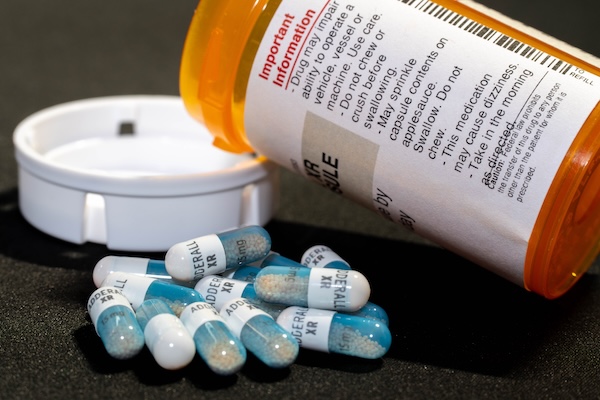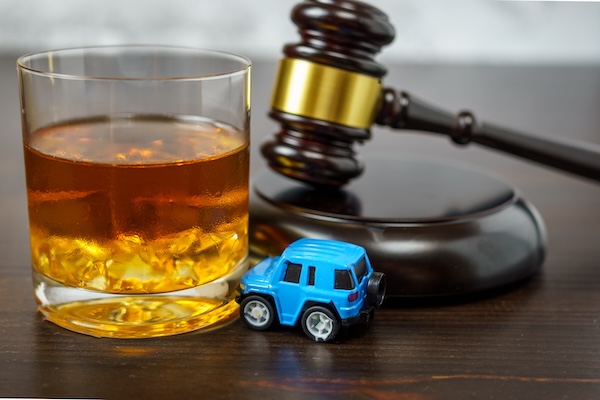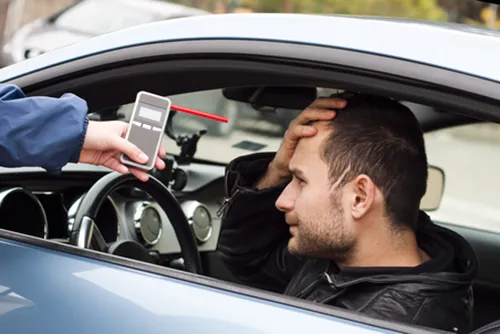Understanding DUI Charges Beyond Alcohol in Asheville
When most people think about a DUI (driving under the influence), they typically picture someone who has been drinking alcohol before getting behind the wheel. However, there is more to a DUI than just alcohol consumption.
In fact, law enforcement officers in Asheville are increasingly aware that driving under the influence of other substances, such as prescription medications, over-the-counter drugs, or even marijuana, can be just as dangerous and can lead to serious DUI charges. Addiction to these substances can also result in DUI charges, as dependence and craving can impair judgment and control, similar to alcohol addiction.
If you’ve ever wondered, “Can you get a DUI for anything other than alcohol?”, you’re not alone. In this blog post, we’ll explore how alcohol intake isn’t the only factor that can lead to a DUI conviction, and why it’s important to understand the potential risks associated with other substances as well. As an experienced Asheville DUI Lawyer, we’ll break down what you need to know to stay informed and make responsible decisions when you’re on the road.
Definition and Scope of DUI/DWI
Understanding the terms DUI (Driving Under the Influence) and DWI (Driving While Intoxicated) is crucial, especially in Asheville, North Carolina. Both terms refer to operating a motor vehicle while impaired, but the definitions can vary by state. In many states, DUI refers to impairment due to alcohol consumption or drugs, while DWI typically relates specifically to alcohol-related impairment.
It’s important to know the difference as it clarifies the legal scope and the potential for DUI charges. In Asheville, understanding DWI and DUI laws is essential, as they outline the legal consequences, rights during traffic stops, and the serious long-term consequences of non-compliance, such as a DUI conviction.
Impairment by Alcohol, Drugs, or a Combination
Impairment can come from many substances, including alcohol, illegal drugs, prescribed medications, over-the-counter medications, and even a combination of substances. Each of these can severely affect a driver’s ability to operate a motor vehicle safely, putting them at risk for DUI charges or worse.
- Alcohol: The most common substance associated with DUI/DWI charges, alcohol impairs judgment, coordination, and reaction time, increasing the likelihood of accidents. Alcohol affects neurotransmitter activity in the brain, particularly influencing dopamine release and GABA activity, which leads to impaired driving. In North Carolina, the legal limit for blood alcohol content (BAC) is 0.08%, and exceeding this limit can lead to a DUI conviction.
- Illegal Drugs: Substances like cocaine, methamphetamines, and heroin can cause significant impairment to a driver. For example, cocaine can cause confusion and aggression, while methamphetamines can lead to hallucinations and impaired impulse control, making driving incredibly dangerous.
- Prescription Medications: Many people are unaware that certain prescription medications can impair their ability to drive safely. Medications like antidepressants and antihistamines can cause drowsiness or dizziness, which makes it unsafe to operate a motor vehicle. Internal medicine practitioners often warn their patients of the beneficial effects of these medications for mental health but also emphasize the importance of not driving while impaired by them.
- Over-the-counter Medications: Even common over-the-counter medications can impair driving abilities. For example, cold medications containing antihistamines can cause slowed reactions and impaired judgment, both of which pose risks on the road.
- Combination of Substances: Mixing alcohol with drugs, whether they are illegal or prescribed medications, can multiply the effects of impairment. This combination often leads to more severe consequences than using either substance alone. For example, the mixture of alcohol and prescription drugs can significantly increase the impairment and result in a DUI conviction. Law enforcement officers are trained to recognize these combinations and may administer tests, such as a blood test, to determine the presence of any substance.
Blood Alcohol Concentration (BAC)
Blood alcohol concentration (BAC) is a critical factor in determining a DUI charge. A BAC of 0.08% or higher can result in a DUI conviction. It is crucial to understand how BAC is measured and what factors can influence it. A law enforcement officer may administer a blood test or breathalyzer to determine a driver’s BAC. Refusal to submit to such tests can be used against the driver and may result in additional penalties. Furthermore, it is essential to note that BAC can be affected by various factors, including the amount of alcohol consumed, body weight, and the time elapsed since drinking.
Substances Other Than Alcohol That Can Lead to DUI
When it comes to DUI laws, many people think only of alcohol consumption. However, there are many substances that can lead to a DUI conviction. Understanding these substances is key for drivers to stay informed and avoid legal trouble. Whether it’s illegal drugs, prescription medications, or even over-the-counter medications, all can significantly impair a person’s ability to drive safely, increasing the likelihood of a DUI charge. Additionally, alternative substances such as herbal teas, CBD oil, and certain supplements can also impair driving.
Illegal Drugs
Illegal drugs can significantly affect your mental and physical ability to drive. Here are some examples of substances that can impair a driver:
- Cocaine: This stimulant can cause mental disorientation, dizziness, confusion, and aggression. Users may feel overconfident and make reckless driving decisions, greatly increasing the risk of drunk driving or impaired driving.
- Methamphetamines: Known for causing excitation and hallucinations, methamphetamines can also cause delusions and impaired impulse control. These effects severely impair a driver’s ability to react to road conditions, which is dangerous when operating a motor vehicle.
- Heroin and Opioids: Heroin and other opioids can cause extreme drowsiness and lethargy, impairing cognitive functions. These drugs are often used for pain relief but can severely impair driving, leading to serious and dangerous situations on the road.
- Marijuana: While legal in some states, including California, marijuana can impair reaction time, judgment, and coordination. Users may not fully realize how much it affects their driving until it’s too late, leading to potential DUI charges.
Prescription and Over-the-Counter Medications
Many drivers are unaware that certain prescription medications and over-the-counter medications can impair their ability to drive, leading to DUI charges.
- Prescription Drugs: Medications like antidepressants, antihistamines, and Valium can cause drowsiness, dizziness, and slowed reactions. Even if these drugs are prescribed, they can still impair driving. These medications are tested for efficacy, but their side effects can still pose risks. A blood test can sometimes detect these substances in the bloodstream if you’re pulled over by a law enforcement officer.
- Over-the-counter Medications: Common over-the-counter medications, such as those used for cold or allergy relief, may have side effects that impair driving. Antihistamines, for example, can cause slowed reaction times and impaired judgment, making it unsafe to drive. Always read labels and be aware of how these medications affect your body.
Mixed Substances
Mixing different substances—whether illegal drugs, prescription medications, or alcohol—can create unpredictable effects that amplify impairment. For instance, alcohol combined with prescription drugs or over-the-counter medications can worsen cognitive and physical impairment, severely hindering driving ability. This combination increases the danger of accidents and raises the legal consequences of being caught driving impaired. Law enforcement typically measures a driver’s BAC to determine impairment, especially when multiple substances are involved.
In North Carolina, the legal consequences for driving under the influence of other substances can be severe. DWI penalties vary based on the severity of the incident, whether the driver has prior offenses, and specific aggravating circumstances. Whether it’s a DUI conviction from alcohol consumption or drugs, the penalties can include fines, license suspension, and possible jail time.
Increased Danger and Impairment
Driving under the influence of any substance—whether alcohol, illegal drugs, prescription medications, or over-the-counter drugs—increases the risk of accidents, injuries, and fatalities. When a driver’s abilities are impaired, their reaction times slow, judgment becomes clouded, and coordination is compromised.
This significantly raises the likelihood of causing a crash, which is why DUI charges are taken so seriously by law enforcement in Asheville and across North Carolina. Finding healthy ways to reduce stress can help avoid the need for substances that impair driving.
How Impairment Affects Driving Ability
Even small amounts of alcohol or certain drugs can dramatically impair a driver’s ability to safely operate a motor vehicle. Here are some of the key ways in which substances affect driving:
- Slowed Reaction Time: Whether from alcohol, prescription drugs, or illegal drugs, many substances cause delayed responses to road conditions, such as sudden stops, obstacles, or the actions of other drivers. Some substances, like those used for their calming effect, can also impair driving by slowing reaction times.
- Impaired Judgment: Drivers under the influence are more likely to make reckless decisions, such as speeding, running red lights, or failing to yield. Impaired judgment can also lead to drunk driving accidents or mistakes that could have been easily avoided.
- Diminished Coordination: Both alcohol and drugs can reduce coordination, making it difficult for drivers to handle the vehicle properly. This includes trouble steering, braking, or maintaining proper lane position, all of which can lead to accidents.
- Blurred Vision: Some substances, including marijuana and certain prescription medications, can cause blurred or double vision, making it difficult for drivers to see road signs, other vehicles, or pedestrians clearly.
The Impact of Multiple Substances
The impairment caused by multiple substances, such as combining alcohol with illegal drugs or prescription medications, can be even more dangerous. These combinations often have synergistic effects, where the combined impact is far greater than the sum of their individual effects.
For example, mixing alcohol with opioids or antihistamines can drastically increase drowsiness and mental impairment, severely affecting a driver’s reaction time and decision-making abilities. These substances can alter a driver’s sense of reality, leading to poor decisions and increased risk on the road.
Law enforcement officers are trained to recognize the signs of impairment from both alcohol and other substances. If you’re found to be impaired in any way, you can face serious DUI charges, even if alcohol wasn’t involved. This is why it’s critical for all drivers to be mindful of how medications and drugs can affect their ability to drive.
Increased Risk to Others on the Road
Impaired driving doesn’t just put the person behind the wheel at risk—it also puts other road users, including pedestrians, bicyclists, and other drivers, in great danger. According to research, driving under the influence of any substance increases the likelihood of an accident that could cause serious injury or death.
This is why DUI charges are so important—they are not just about punishing offenders, but about protecting everyone in the community.
North Carolina’s Approach to DUI from Substances Other Than Alcohol
In North Carolina, DUI charges are not limited to alcohol consumption. The state has a comprehensive approach to impaired driving that includes illegal drugs, prescription medications, and over-the-counter drugs. If a driver is found to be driving under the influence of any substance that impairs their ability to operate a motor vehicle safely, they can face severe DUI charges and legal consequences, even if they have not been drinking alcohol.
Illegal Drugs and DUI
Many people are unaware that using illegal drugs can result in a DUI conviction. Substances like cocaine, methamphetamines, and heroin can have serious effects on a person’s ability to drive safely. These substances can impair a driver’s reaction time, judgment, and coordination, making them dangerous on the road.
In North Carolina, law enforcement officers are trained to detect signs of impairment caused by these illegal drugs, and they may request a blood test or other chemical testing to determine the presence of these substances.
For example, cocaine can cause mental disorientation, confusion, and aggression, leading to reckless driving decisions. Similarly, methamphetamines can induce hallucinations and cause a driver to lose control over their impulses, while heroin and other opioids can cause severe drowsiness and lethargy, severely impairing driving ability.
Prescription Medications and DUI
Even prescription medications—including antidepressants, antihistamines, and painkillers—can lead to DUI charges if they impair a person’s ability to drive. Many medications, although legally prescribed, can cause side effects like drowsiness, dizziness, or delayed reaction times, which can significantly impact a driver’s performance on the road.
North Carolina’s approach to DUI from prescription drugs includes thorough testing. If a driver shows signs of impairment, law enforcement officers can administer a blood test to check for the presence of these substances. Drivers under the influence of prescription medications can face the same legal consequences as those caught driving under the influence of alcohol.
Over-the-Counter Medications and DUI
Even common over-the-counter medications (OTC), such as cold and allergy remedies, can lead to impaired driving. Many OTC medications contain antihistamines or other sedatives that can cause slowed reaction times, blurred vision, and impaired judgment. It is important for drivers to be aware of how these medications affect them before getting behind the wheel. Non-alcoholic drinks can replicate the taste of alcoholic beverages without the impairment.
In North Carolina, DUI charges can be brought against individuals who are caught driving under the influence of over-the-counter drugs, especially if the substance impairs their ability to operate a vehicle safely.
Legal Consequences in North Carolina for DUI/DWI Offenses
In North Carolina, Driving While Impaired (DWI) includes impairment due to alcohol consumption, illegal drugs, prescription medications, or over-the-counter drugs. Understanding the legal consequences of a DWI conviction is crucial, as penalties can be severe and vary based on factors such as prior offenses and the presence of aggravating circumstances. The stress and anxiety of legal proceedings can be overwhelming for those facing DUI charges.
DWI Sentencing Levels
North Carolina utilizes a structured sentencing system with six levels, ranging from Level 5 (least severe) to Level 1 (most severe). The level assigned depends on factors like the driver’s history and the circumstances of the offense. Offenders may have to spend time in community service or jail as part of their sentence.
- Level 5: Includes a fine up to $200 and a minimum jail sentence of 24 hours, with a maximum of 60 days. Judges may suspend the sentence upon completion of 24 hours in jail, 24 hours of community service, or 30 days without driving.
- Level 4: Includes a fine up to $500 and a minimum jail sentence of 48 hours, with a maximum of 120 days. Judges may suspend the sentence upon completion of 48 hours in jail, 48 hours of community service, or 60 days without driving.
- Level 3: Includes a fine up to $1,000 and a minimum jail sentence of 72 hours, with a maximum of six months. Judges may suspend the sentence upon completion of 72 hours in jail, 72 hours of community service, or 90 days without driving.
- Level 2: Includes a fine up to $2,000 and a minimum jail sentence of seven days, with a maximum of one year. Judges cannot suspend the minimum sentence.
- Level 1: Includes a fine up to $4,000 and a minimum jail sentence of 30 days, with a maximum of two years. Judges cannot suspend the minimum sentence.
- Aggravated Level 1: Imposed if three or more grossly aggravating factors are present, such as prior DUI convictions within the last seven years, driving with a child passenger, or causing serious injury to another person. This level includes a fine up to $10,000 and a mandatory minimum of 12 months in prison, with no eligibility for parole.
License Revocation
A DWI conviction leads to mandatory license revocation:
- First offense: One-year revocation.
- Second offense: Four-year revocation.
- Third offense: Permanent revocation, with potential for reinstatement after three years.
During the revocation period, individuals may need to walk or use public transportation.
Additional Penalties
- Ignition Interlock Device (IID): Required for drivers with a BAC of 0.15 or higher or those with prior DUI convictions. The device prevents the vehicle from starting if alcohol is detected.
- Substance Abuse Assessment and Treatment: Mandatory for all DWI offenders. Failure to complete the assessment or recommended treatment can result in extended license revocation and additional penalties.
- Fines and Court Costs: Fines vary based on the severity of the offense, ranging from $200 to $10,000. Additional court costs and legal fees can significantly increase the financial burden. Non-alcoholic wines are available as an alternative to traditional alcoholic beverages, catering to health-conscious consumers.
- Insurance Premiums: A DWI conviction typically results in a substantial increase in auto insurance premiums, sometimes by as much as 300%.
Habitual DWI Offender
A driver is classified as a habitual DWI offender if convicted of three or more DWI offenses within 10 years. This designation carries severe penalties, including:
- Mandatory minimum of 12 months in prison, with no eligibility for parole.
- **Permanent license revocation, with potential for reinstatement after three years.
- Substantial fines and mandatory substance abuse treatment.
Behavioral drives, such as stress and neurotransmitter activity like dopamine, can lead individuals to repeatedly engage in DWI offenses.
Legal Rights and Procedures
Implied Consent Law: By operating a vehicle in North Carolina, drivers consent to chemical testing (breath, blood, or urine) if suspected of impaired driving. Refusal to submit to testing results in an immediate one-year license revocation. The stress of a long day in court can be overwhelming for those facing DUI charges.
“Prayer for Judgment Continued” (PJC): North Carolina does not allow a PJC for DWI offenses. A PJC is a legal mechanism that can prevent the imposition of certain penalties, such as fines or points on a driver’s license, offering defendants an opportunity to avoid some consequences of a conviction.
Strategies for Safe Driving
There are several strategies that can help individuals avoid DUI charges and practice safe driving. These include:
- Designating a sober driver or using a ride-sharing service when planning to drink
- Being aware of the legal limit and the factors that can influence BAC
- Avoiding the use of other substances, such as marijuana, when driving
- Getting plenty of rest and avoiding drowsy driving
- Following all traffic laws and regulations
- Avoiding distractions while driving, such as using a phone or eating
By following these strategies, individuals can significantly reduce their risk of being involved in a drunk driving accident or receiving a DUI charge. It is also important to note that law enforcement officers are trained to detect and prevent drunk driving, and that the consequences of a DUI conviction can be severe and long-lasting.
Contact Us for Expert Legal Help with DUI Charges
If you have been charged with a DUI in Asheville, North Carolina, whether for alcohol, illegal drugs, prescription medications, or over-the-counter drugs, it is important to seek expert legal guidance immediately.
A DUI conviction can lead to severe consequences, including fines, license suspension, and possible jail time. At Asheville DUI Lawyer, we specialize in helping individuals navigate the complexities of DUI charges and provide the defense you need to protect your rights.
Our experienced team will review your case, assess the evidence, and provide you with the best possible legal strategy to minimize the impact of these charges on your life. Don’t face a DUI charge alone—let us help guide you through the legal process and work to achieve the best possible outcome for your case.
Contact us today for a consultation, and take the first step toward resolving your DUI charges with confidence. We are here to support you every step of the way.
Call us now at 828-759-5556 to get started!








